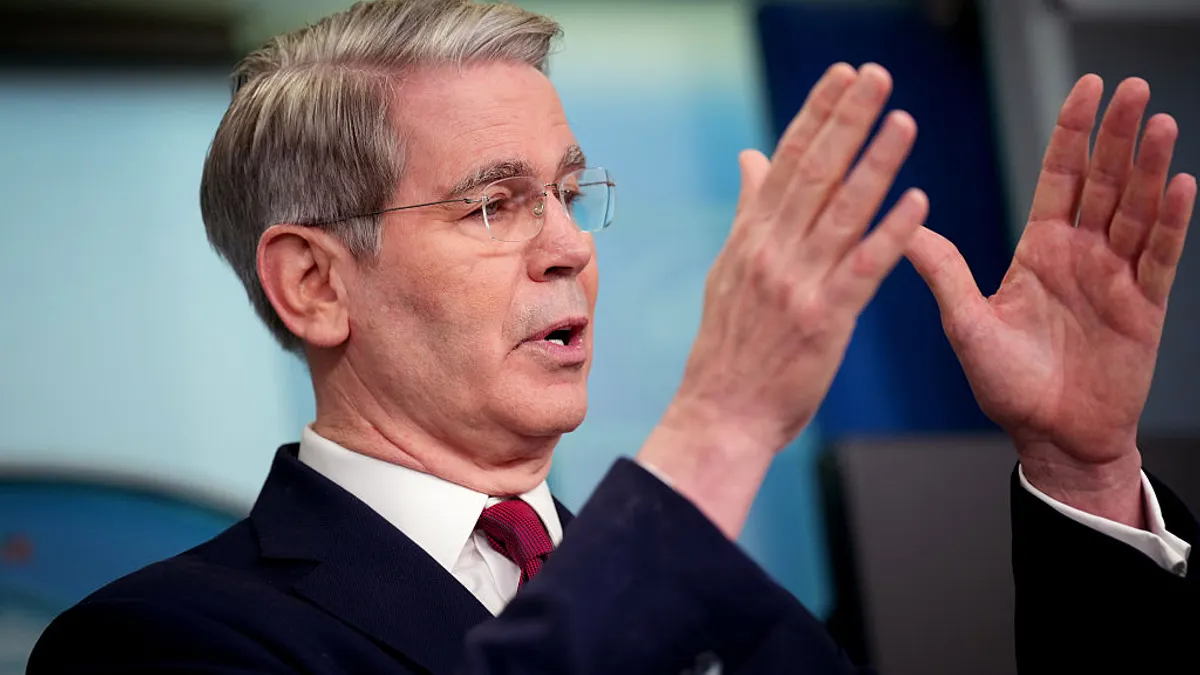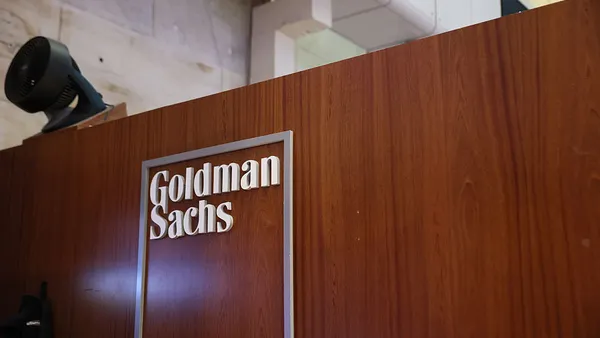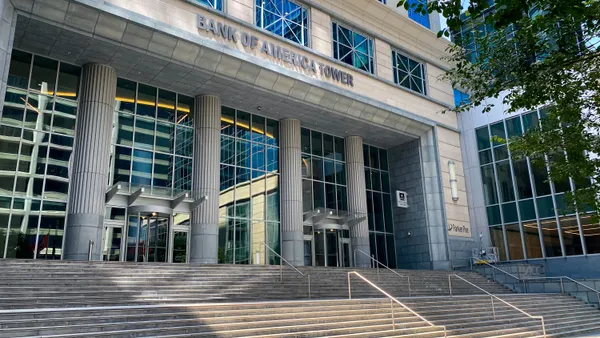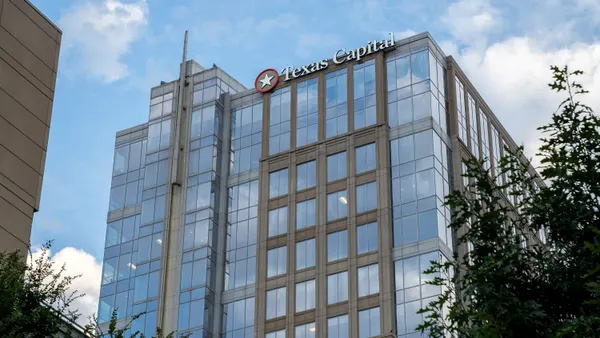Dive Brief:
- Treasury Secretary Scott Bessent on Monday emphasized the Trump administration’s aim to pursue deregulation for financial institutions, pointing to private credit’s rise as a sign banks have been overly burdened in recent years.
- Bessent referred to private credit as an “incredible” element of the capital markets, but said “the growth of private credit tells me that the regulated banking system has been too tightly constrained,” Bessent said Monday at the Milken Institute Global Conference in Los Angeles.
- “The regulators are aligned,” and will be “safe, sound and smart and redoing regulated financial entities,” Bessent said.
Dive Insight:
Last month, at an American Bankers Association summit, Bessent said the Treasury Department “intends to play a greater role in financial regulation,” as the Trump administration seeks to ensure bank regulators fulfill their statutory mandate “consistent with his priorities.” The Financial Stability Oversight Council is one potential forum for that bigger role, he noted.
“President Trump tasked me with helping him choose the leaders for the financial regulators,” Bessent said Monday. Those new appointments include Federal Reserve Gov. Michelle Bowman as the administration’s pick for vice chair of supervision, as well as new heads of the Office of the Comptroller of the Currency, Federal Deposit Insurance Corp., Securities and Exchange Commission and Commodity Futures Trading Commission, he said.
Their alignment is the key to making financial deregulation a reality, he indicated. Last month, Bessent cited more tailored regulation for community banks – which Bowman has advocated for – and refocusing bank supervision on material financial risk as reform priorities.
Bessent’s comments followed a Wall Street Journal opinion piece Sunday, in which he wrote that the Trump administration wants to enhance Americans’ access to capital “by easing undue compliance burdens on community and other small banks, which play a crucial role on Main Street by providing loans for cars and homes.”
Bessent spun the administration’s trade policies, tax reform efforts and deregulation agenda as a three-prong strategy. “Trade, tax cuts and deregulation aren’t stand-alone measures but interlocking parts of an engine designed to drive economic growth and domestic manufacturing,” he wrote in the op-ed.
If the Trump administration’s plans come to fruition, Bessent on Monday indicated he envisions downsized federal government workers ending up employed in the private sector.
“We're right-sizing government spending and government employment, and then on the other side, through financial deregulation, we're releveraging the private sector, and then the excess employment that was shed in the government economy can go to the private sector,” he said.
The FDIC, OCC, SEC and National Credit Union Administration are among the federal agencies that have sought to shed jobs since the Trump administration took over in January. Officials have also pursued deep cuts at the Consumer Financial Protection Bureau, which are being contested in court.
Citi CEO Jane Fraser also appeared at the Milken conference Monday, as part of a panel discussing the global capital markets. One of the biggest questions remains, “what is the magnitude of the tariffs?” she said.
“If it’s 10%, most of the clients we talk to say, yeah, you know, we can absorb that. If it’s 25%, not so much,” Fraser said.
The bank’s clients are “prepping for headwinds,” pulling some spending forward and holding off on certain investments, she said. Smaller businesses and medium-sized companies are likely to be those hit hardest in the near term by the administration’s changes, she added.
As the trillion-dollar private credit market has swelled, nonbank firms – which aren’t heavily regulated like banks – have begun encroaching on banks’ territory. Former FDIC Chair Martin Gruenberg has said the growth of nonbank financial firms is one of his biggest concerns, given some nonbanks are highly leveraged and “deeply connected” to the banking system.
Fraser said she doesn’t see direct lending as a threat to the bank, saying it’s “not a zero-sum game.”
Citi was part of a group of investors that put $800 million into an Apollo Global vehicle for a Boeing financing deal, Fraser noted. Last year, the bank and the asset management firm launched a $25 billion private credit and direct lending program, designed to “enhance access for corporate and sponsor clients to the private lending capital pool.”
That’s been “a very important part of the toolkit,” Fraser said. “The more diversity of responsible tools and responsible options out there, the better for all of us.”
Fraser also mentioned she appreciated Bessent’s comments related to “helping banks be able to do their day job” which frees up financial institutions to do more lending and “participate in areas that have been more constrained of late.”











